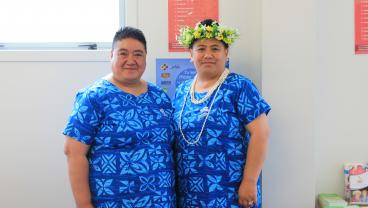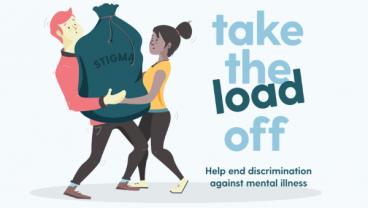Erin
Mental distress on campus
The years spent in tertiary study are supposed to be some of the best of our lives – a time of freedom, experimentation and learning. It can also be a time of poverty, social pressure and anxiety leading to experience of mental illness.
What are the realities of tertiary study? What can be done to reduce stigma and discrimination on campus and embed resilience so that students can really make the most of the opportunities that tertiary study offers? Students and staff at two tertiary institutions share their ideas and experiences.
Erin Harrington is a student currently completing her PhD in cultural studies at the University of Canterbury. She is also a regular contributor to CANTA, the official magazine of the University of Canterbury Students’ Association. Fed up with coverage of mental health issues that she found discriminating and trivialising, Erin wrote an article for the July 2011 issue of CANTA called It’s a bit messy, but life is messy… – The Stigma of Mental Illness.
Erin says she was surprised by how willing people were to speak to her about their experiences.
“The students I spoke to felt they had to put themselves into a closet,” she says. “They received help and support at an individual level, but not in public. Their perception was that many people are still keen to keep mental illness behind closed doors.”
Erin believes that to reduce stigma and discrimination on campus, more people need to speak clearly about their personal experience, not just discuss the high profile negative events (such as suicides).
Combating anxiety, stigma and discrimination
Rachel Anderson-Smith, manager of Disability Services at Victoria University of Wellington, agrees. “Internationally the proportion of tertiary students experiencing and seeking help for mental illness is increasing and we are observing a similar trend,” she says. “At Victoria we are motivated to reduce students’ mental distress and anxiety and to focus on prevention, not just support. “
Last year, Disability Services and the Student Counselling Service hosted a symposium on anxiety in tertiary study generating nationwide interest with over 150 participants,” Rachel says.
“The symposium brought together a diverse range of people including students, academics, government agencies and mental health professionals to discuss and reflect on how students experiencing anxiety can be supported. We also explored how we can enhance tertiary environments to be inclusive of diversity, achieve academic excellence and reduce unnecessary stress on students and staff.”
Rachel agrees that stigma and discrimination associated with mental illness is still present on university campuses as it is in society. “I have seen a significant reduction in the level of stigma and discrimination on campus.
Victoria-based disability awareness efforts have complemented nationwide campaigns to influence that culture,” she says. “I also credit Generation Y, as they are more welcoming of difference and expect inclusion – and so they should!” “As an example of how far we’ve come, five years ago very few students with experience of mental illness wanted to disclose their needs to course coordinators. Now the significant majority of students are willing to disclose. They are much more likely to receive a positive response now and that encourages them to take the first step towards creating a partnership.”
Sound advice from Carina Allen
Carina Allen has recently completed a Bachelor of Counselling at Weltec. Part of her study involved a work placement at the Student Counselling Service at Victoria University of Wellington. She was also a guest speaker at their symposium on anxiety in tertiary study, where she gave her perspective on experiences of anxiety as a student. She doesn’t believe anxiety in tertiary study can be totally prevented, but says there are many ways to reduce stress levels while studying:
- Accepting anxiety as a natural response to the increasing demands we put upon ourselves
- Maintaining open communication between tutors and students
- Tutors available via email, so students can have direct contact with them
- Assignments need to be clearly explained so everyone in the class can understand exactly what is expected of them
- Student support, such as peer study groups, is useful
- Having a supportive, rather than competitive, culture within the tertiary environment is important
- Offering seminars on anxiety and stress management and ways to combat anxiety is valuable to students
Carina's experience
Carina hasn’t experienced much stigma and discrimination associated with her mental distress. “A lot of people are really interested and want to know more, so if I am not defensive and leave a space for people, they are interested and ask me questions. Often I find people are in the same boat as myself, but they haven’t felt comfortable talking about it until now.”
Disability Services at Victoria University of Wellington are now working with the Student Counselling Service and others to enhance the culture of resilience at Victoria. They have developed self-help resources on self-stigma, positive disclosure and are developing a short film on resilience with the aim of the film being shown during course lectures.
Good reads

Editorial
Five ways to reduce discrimination
Mental illness discrimination has a long, pervasive history. Many widely held negative... Read more

Community Grants
Ivan's project: "You Are Not Alone"
You Are Not Alone is a video and poster campaign produced by... Read more

Ngā Kōrero and mental distress
What young people want
People under the age of 25 make up around 33% of our... Read more

Pacific models create non-discriminatory environments
Susanne
Susanne Cummings' journey started almost 20 years ago when she lived through... Read more

Editorial
Take the Load Off
Take the Load Off is an online campaign to reduce mental illness... Read more

Rainbow identities and mental distress
Discrimination, compounded
Moira Clunie is a community advocate whose work focuses on making New... Read more

